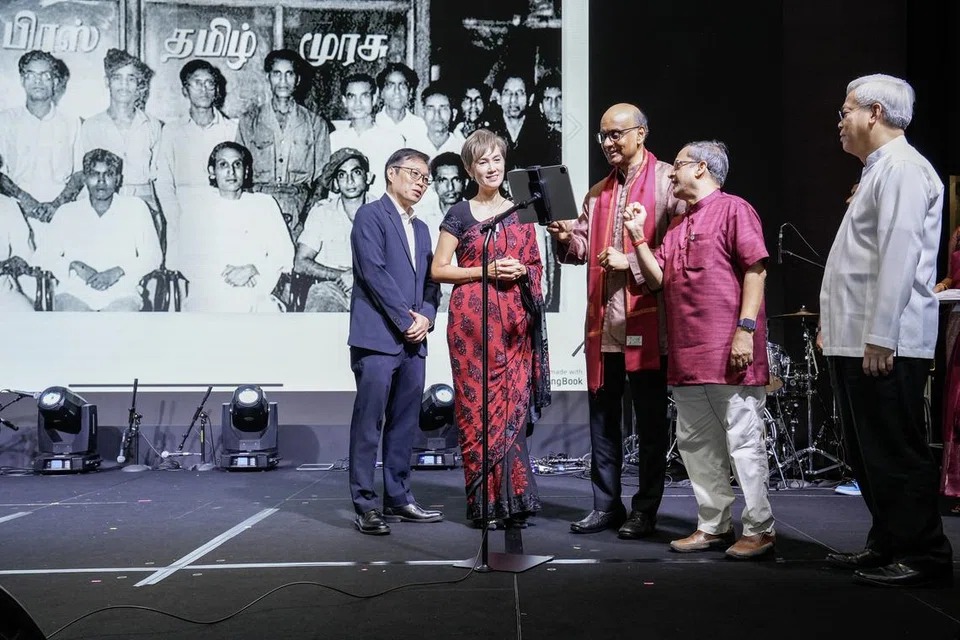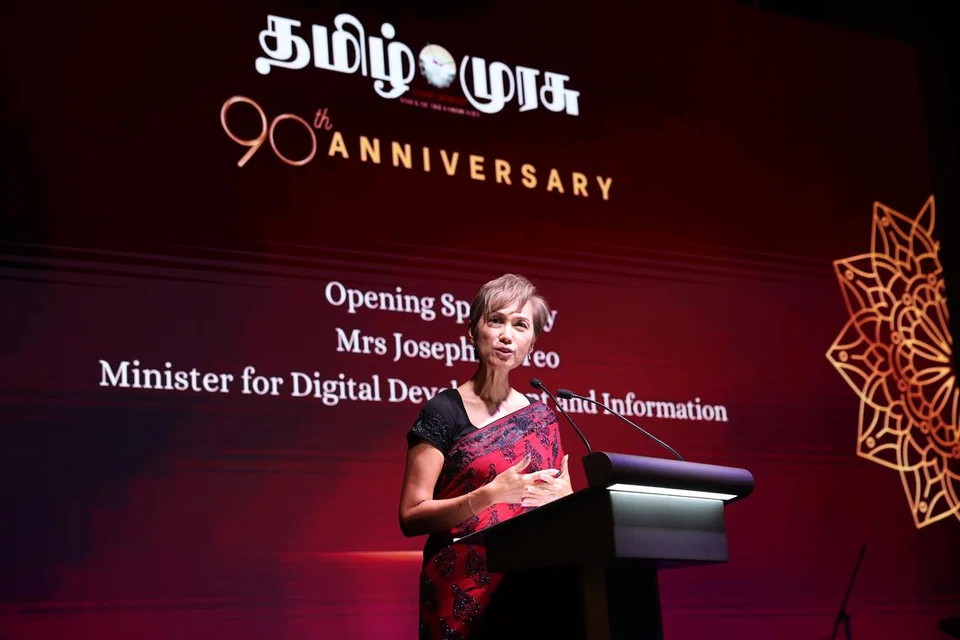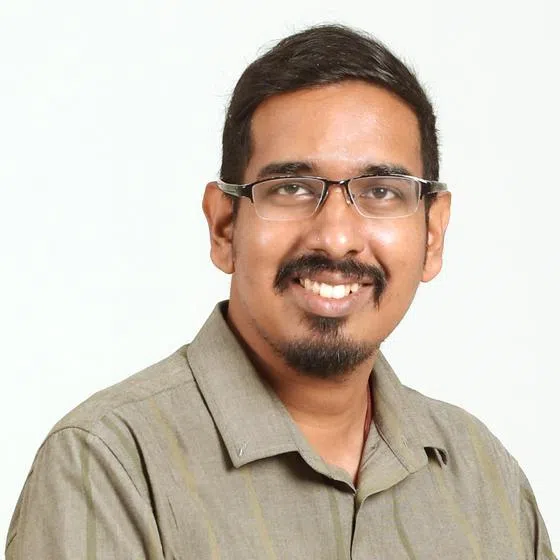Throughout various periods in Singapore’s history, Tamil Murasu (TM) has chronicled the nation’s major milestones and has played an integral role in Singapore’s nation-building journey, Minister for Digital Development and Information (MDDI) Josephine Teo said.
“You influenced and shaped developments. This being SG60, I would like to acknowledge your role in nation-building,” she noted.
Mrs Teo made these remarks on July 6 while speaking at TM’s 90th anniversary celebration.
Held at the Fairmont Singapore hotel, the event was attended by about 1,000 guests, including community leaders, stakeholders and local Tamil writers.
President Tharman Shanmugaratnam was the guest of honour. Other senior government officials who attended include Ministers Indranee Rajah and Edwin Tong, Acting Minister-in-charge of Muslim Affairs Muhammad Faishal Ibrahim, Senior Ministers of State, Janil Puthucheary and Murali Pillai, Minister of State Dinesh Vasu Dash, as well as Members of Parliament Vikram Nair and Dr Hamid Razak.
Several cultural performances and a video showcasing Tamil Murasu’s history were featured on stage. Guests were given a memento bag with Tamil Murasu’s 90-page bumper issue specially made for the anniversary.
Mrs Teo reflected on TM’s rare journey as one of the very few newspapers worldwide to have survived over 90 years.
“You lived through colonial rule and the Japanese Occupation, when you were forced to cease publication. Your journey was closely intertwined with Singapore’s path to independence,” she said.
Except for India, Sri Lanka and Malaysia, none of the countries with sizeable Tamil populations exceeding 200,000 have a Tamil news publication with a daily print run, she added.
While neighbouring Malaysia continues to have two Tamil dailies, they have about two million Tamils, or around ten times the number in Singapore, Mrs Teo noted.

The First Drafts of History
Journalism is the first draft of history, noted Mrs Teo, who said that newspapers document events as they unfold, even if imperfectly, and historians later refine these.
In the 1960s, when Singapore transitioned from kampongs (villages) to public housing, many Indian families were worried about losing their cultural and religious ties.
Even while acknowledging the sense of loss felt by some, TM helped paint a hopeful vision of improved living standards, modern infrastructure and a shared national identity rooted in HDB towns, Mrs Teo said.
“Through editorials and stories, Tamil Murasu helped the Indian community view this transition not as displacement and loss, but as an active participation in Singapore’s modernisation and progress,” she said.
Delivering news with empathy
She also spoke about how Tamil Murasu promoted constructive dialogue around Singapore’s bilingual policy, avoiding a deepening of divisions, as some groups at that time tried to pit the English-speaking elite against vernacular language defenders.
“The bilingual education policy has been instrumental in helping our citizens seize opportunities for growth by being plugged into the global economy, while staying rooted in our heritage and culture,” Mrs Teo said.
“In those moments, Tamil Murasu served as a bridge – helping the public understand the rationale for bilingualism while also voicing the concerns of the community.”
She also noted the continued use of TM’s student supplement, Maanavar Murasu, first launched in 1952. “Many in the audience would remember growing up with Tamil Murasu – reading it in Tamil classes or for schoolwork,” she told the audience.
Touching on the Covid-19 pandemic, Mrs Teo acknowledged Tamil Murasu’s timely communication of important public health information to Tamil speakers, including migrant workers.
“Such stories uplifted and united; they affirmed the community’s contributions and encouraged aspiration.”
A new avatar for a new generation
Mrs Teo praised TM’s recent efforts to make general election coverage relatable to young readers.
Named Ilaya Thalaimurai, the young audience channel of Tamil Murasu produced vodcasts and short videos reflecting young voters’ aspirations during the General Elections 2025 to help explain the electoral process to first-time voters.
She emphasised that this valuable work would not have been possible without a committed team behind the scenes. She also expressed joy at the event’s recognition of former editors.
“As we look to the future, I encourage Tamil Murasu to continue being a relevant and trusted platform that helps citizens stay informed and engaged.”
She acknowledged that this will not be easy, citing technological disruption and evolving consumer preferences.
“I’m therefore heartened to see Tamil Murasu experimenting with new products and approaches to strengthen relations with its audiences.
The youth dialogues you organise on topical issues allow you to grow deep and meaningful connections with the next generation,” she highlighted.
Mrs Teo further affirmed the Government’s commitment to supporting TM in remaining a strong voice for the Tamil community through innovative approaches.
“We made it a condition of funding to SPH Media Trust, that vernacular media must be supported and strengthened,” she said.


